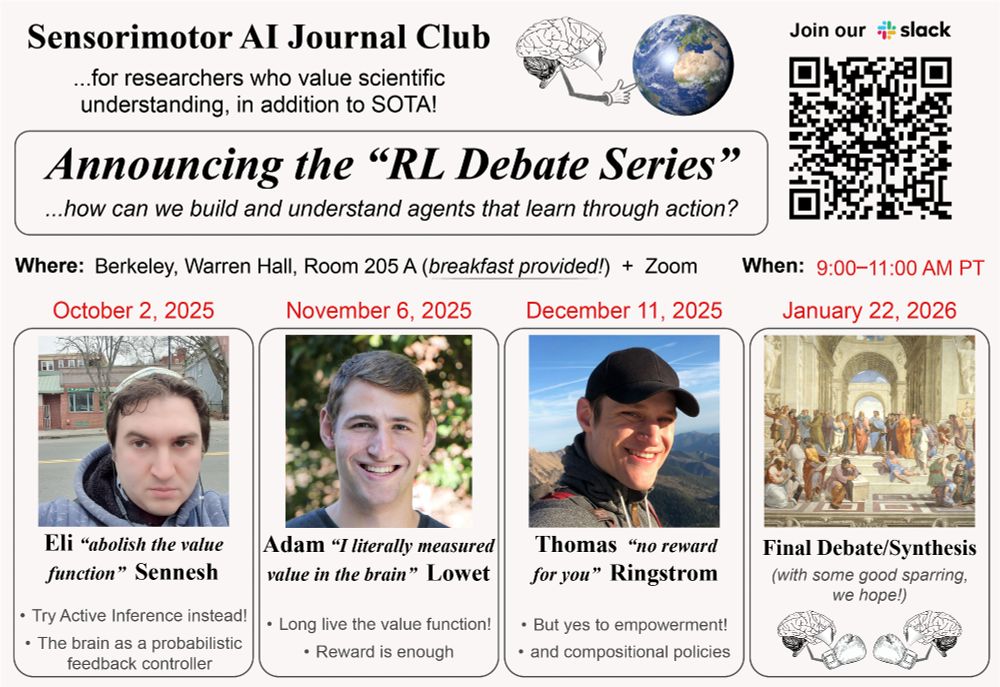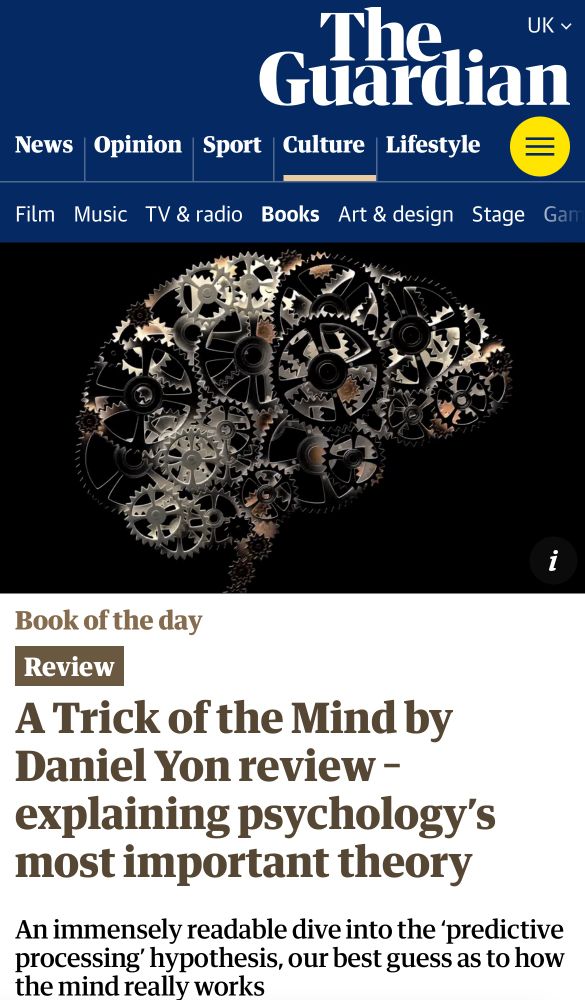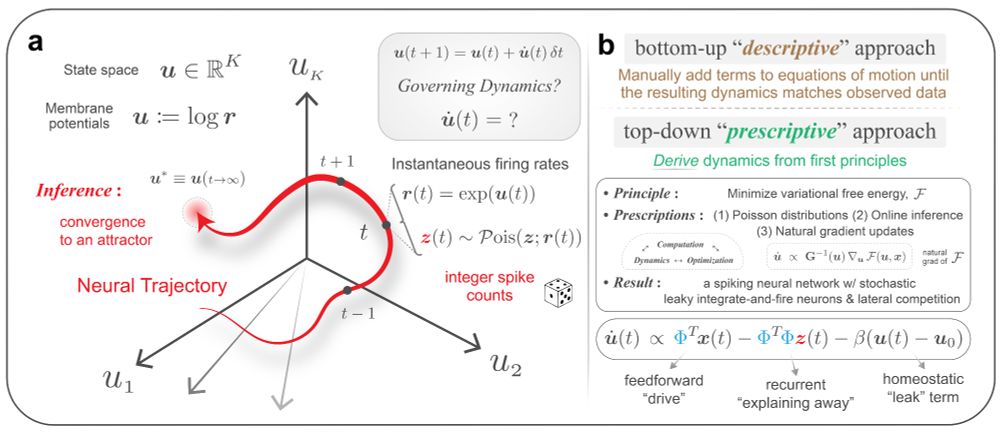Maxwell Ramstead
@mjdramstead.bsky.social
1.3K followers
150 following
120 posts
Cofounder @noumenal-labs.bsky.social. Honorary Fellow at the UCL Queen Square Institute of Neurology. Free energy principle, active inference, Bayesian mechanics, artificial intelligence, phenomenology
Posts
Media
Videos
Starter Packs
Reposted by Maxwell Ramstead
Reposted by Maxwell Ramstead
Reposted by Maxwell Ramstead
Maxwell Ramstead
@mjdramstead.bsky.social
· Sep 15
Maxwell Ramstead
@mjdramstead.bsky.social
· Sep 15
Maxwell Ramstead
@mjdramstead.bsky.social
· Sep 15

Dynamic Markov Blanket Detection for Macroscopic Physics Discovery
The free energy principle (FEP), along with the associated constructs of Markov blankets and ontological potentials, have recently been presented as the core components of a generalized modeling metho...
arxiv.org
Maxwell Ramstead
@mjdramstead.bsky.social
· Sep 15
Reposted by Maxwell Ramstead
Reposted by Maxwell Ramstead
Takuya Isomura
@takuyaisomura.bsky.social
· Aug 11

Predicting individual learning trajectories in zebrafish via the free-energy principle
The free-energy principle has been proposed as a unified theory of brain function, and recent evidence from in vitro experiments supports its validity. However, its empirical application to in vivo ne...
doi.org
Reposted by Maxwell Ramstead
Jen
@ladyjenpool.bsky.social
· Jun 22
Reposted by Maxwell Ramstead
Reposted by Maxwell Ramstead
Reposted by Maxwell Ramstead
Reposted by Maxwell Ramstead
Fernando Rosas
@frosas.bsky.social
· Apr 23

Shannon invariants: A scalable approach to information decomposition
Distributed systems, such as biological and artificial neural networks, process information via complex interactions engaging multiple subsystems, resulting in high-order patterns with distinct proper...
arxiv.org
Reposted by Maxwell Ramstead
Tiago Peixoto
@tiago.skewed.de
· Apr 5
Reposted by Maxwell Ramstead
Ryan Smith
@rssmith.bsky.social
· Mar 27
A Systematic Empirical Comparison of Active Inference and Reinforcement Learning Models in Accounting for Decision-Making Under Uncertainty
Reinforcement Learning (RL) and Active Inference (AInf) are related computational frameworks for modeling learning and choice under uncertainty. However, differ
papers.ssrn.com
Reposted by Maxwell Ramstead
John Scalzi
@scalzi.com
· Mar 20
NEW: LibGen contains millions of pirated books and research papers, built over nearly two decades. From court documents, we know that Meta torrented a version of it to build its AI. Today, @theatlantic.com presents an analysis of the data set by @alexreisner.bsky.social. Search through it yourself:

The Unbelievable Scale of AI’s Pirated-Books Problem
Meta pirated millions of books to train its AI. Search through them here.
www.theatlantic.com
Maxwell Ramstead
@mjdramstead.bsky.social
· Mar 18
Maxwell Ramstead
@mjdramstead.bsky.social
· Mar 17











